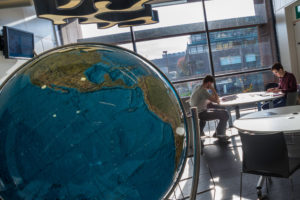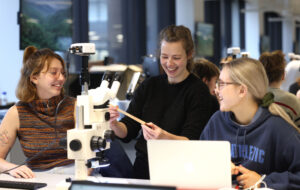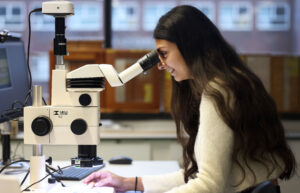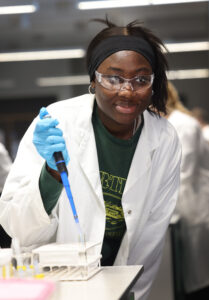How you'll learn
To help you meet the intellectual and practical challenges of studying Geography, our programmes are taught using a student centred approach, involving a range of learning experiences. These include:
- Small tutor groups (typically eight students) through all years
- High levels of field-based learning within the UK and abroad
- An emphasis on active, problem-based learning (‘learning by doing’)
- Hands-on experience of cutting-edge laboratory technologies in physical geography
- Innovative GIS, statistical and qualitative research methodologies and community consultation in human geography
- Supervised independent and group project work, including (for Single Honours degrees) a final year independent research-based dissertation supervised by a dedicated expert in the field.
A number of the School’s degree programmes involve laboratory and fieldwork. The fieldwork is carried out in various locations, ranging from inner city to coastal and mountainous environments. We consider applications from prospective students with disabilities on the same basis as all other students, and reasonable adjustments will be considered to address barriers to access.
How you're assessed
Assessments are designed around developing skills and styles of communication that will be relevant to future employers. So, in addition to exams and essays, you will also undertake assessments that include computer-based exercises, oral presentations, policy briefs, field projects, and research reports. Single Honours Geography students complete a compulsory 10,000-word dissertation in their final year on a topic of their choice. This is your opportunity to develop skills as an independent academic researcher, supported on a one-to-one basis by an expert in the field.
Liverpool Hallmarks
We have a distinctive approach to education, the Liverpool Curriculum Framework, which focuses on research-connected teaching, active learning, and authentic assessment to ensure our students graduate as digitally fluent and confident global citizens.
The Liverpool Curriculum framework sets out our distinctive approach to education. Our teaching staff support our students to develop academic knowledge, skills, and understanding alongside our graduate attributes:
- Digital fluency
- Confidence
- Global citizenship
Our curriculum is characterised by the three Liverpool Hallmarks:
- Research-connected teaching
- Active learning
- Authentic assessment
All this is underpinned by our core value of inclusivity and commitment to providing a curriculum that is accessible to all students.







